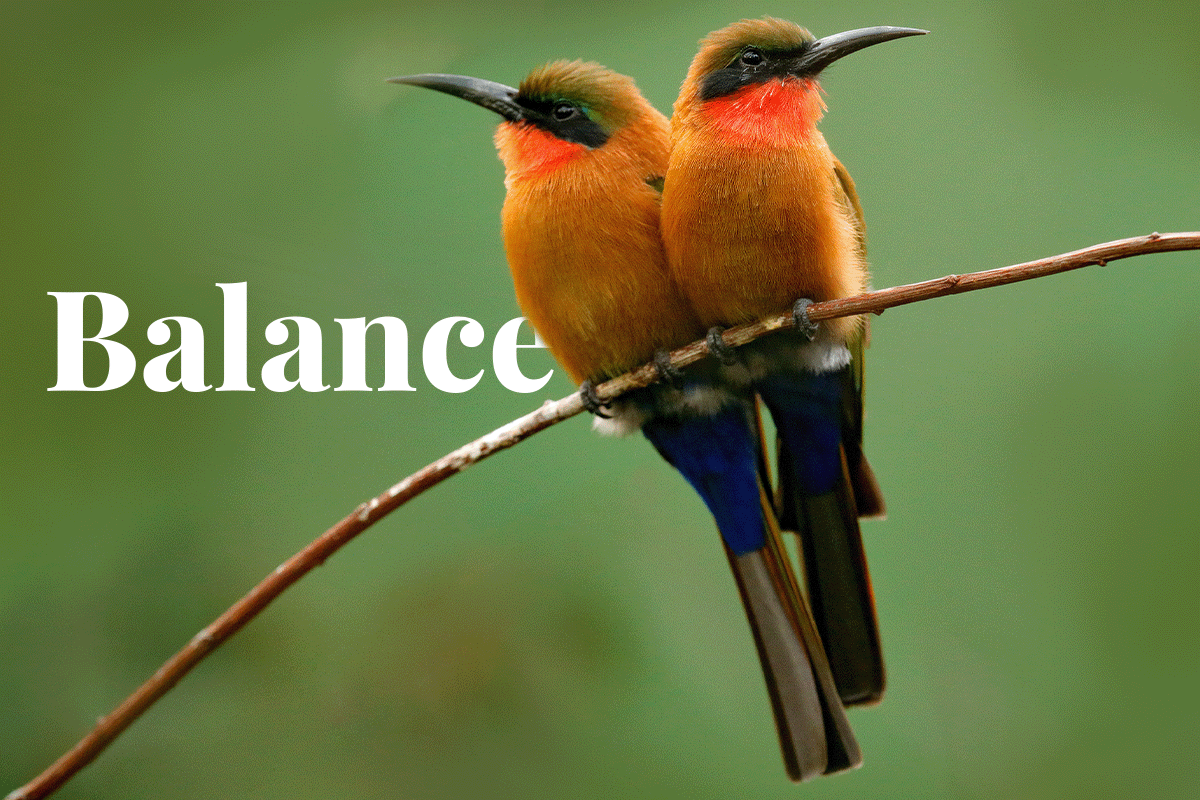A collaborative report by the African Natural Capital Alliance (ANCA) and management consulting firm Oliver Wyman has underscored the growing importance of African regulators taking action on nature-related risks in line with their mandate to maintain financial stability. The report titled Improving the transparency of nature-related risks in Africa: the emerging regulatory agenda outlines how financial sector stakeholders, including regulators, increasingly recognise the potential risks to financial and economic stability posed by the depletion of nature.
 African birds sitting on a tree branch.
African birds sitting on a tree branch.
The report highlights that this issue is particularly urgent for sub-Saharan Africa, where economies depend disproportionately on nature. Over 70% of people in the region rely on forests and woodlands for their livelihoods. In contrast, about half of the world's GDP is generated in industries dependent on nature. Such reliance on nature makes the region vulnerable to the consequences of its degradation.
The rate at which nature is lost in Africa also surpasses the global average. The Biodiversity Intactness Index (BII), which measures the number and abundance of species on land, has declined by 4.2% between 1970 and 2014, considerably higher than the global BII score decline of 2.7% over the same period. East Africa faces a significant economic loss of more than $11.3 billion per year if natural capital is not adequately protected. An assessment commissioned in 2021 by USAid reveals that failure to safeguard natural capital, including soil, air, water, and all living things, would have severe economic repercussions for the region.
Read more: EU's Nature Restoration Law: a paradigm shift for biodiversity and climate resilience
Dorothy Maseke, the Nature Lead at FSD Africa and ANCA, stresses the importance of enhanced transparency of nature-related risks for managing them effectively. For individual financial institutions, understanding the nature-related risks in their lending, underwriting, and investment portfolios is vital. Similarly, regulators need this transparency to identify nature-related risk concentrations for regulated entities and assess their management.
Sandra Villars, senior advisor at Oliver Wyman, points to the Global Biodiversity Framework (GBF) adopted in December 2022 by 188 governments worldwide. The GBF aims to address biodiversity loss, restore ecosystems, and protect Indigenous rights. This landmark agreement prompts governments to introduce policies to manage nature loss, leading to an increased role for regulators in the process. African regulators could benefit significantly from engaging with this new agenda early and being at the forefront of integrating nature into their regulatory regimes.
Read more: 5 Ways businesses can implement the new Global Biodiversity Framework
Abraham Ongenge, KCB Bank Kenya’s Director of Finance, emphasises the financial sector's critical role in addressing climate change. As the largest source of investment capital in the world, the sector can support sustainability by directing resources towards environmentally friendly projects and businesses. The report is a valuable resource for financial institutions in Africa, offering clear and concise guidance on integrating climate considerations into lending and investment decisions. It emphasises the importance of transparency and disclosure in effectively addressing climate-related risks. African regulators must act decisively to tackle nature-related risks and safeguard the continent's financial stability and ecological balance.
With a profound focus on biodiversity, DGB Group’s mission resonates with the urgent imperative to safeguard the delicate interconnectedness of life on Earth. In an era where the threats to biodiversity are incessantly mounting, organisations like DGB play a pivotal role in shaping a future where the marvels of biodiversity can flourish. Our commitment to nature-based solutions and fostering ecosystems lays the foundation for a sustainable and vibrant planet. With each step towards understanding, restoring, and protecting the diversity of life, we embark on a journey towards a greener and ecologically resilient world.
Take the first step towards a greener future with DGB

